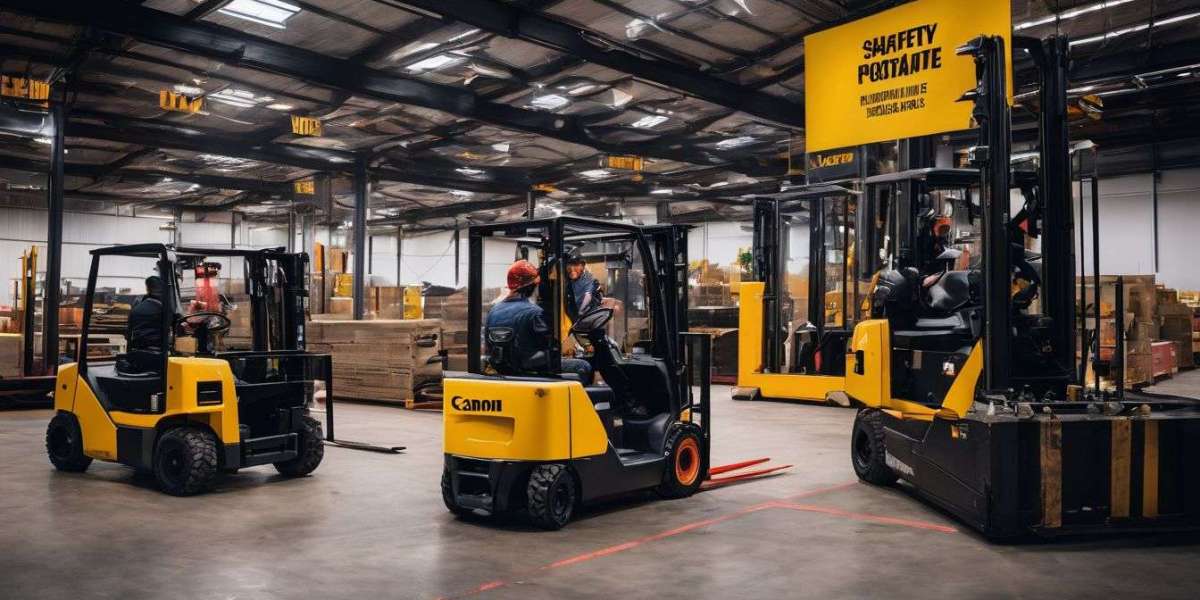Benefits of Simulations in FLT Training:
Simulations offer a host of benefits that traditional training methods simply cannot match. One of the primary advantages is the ability to recreate realistic workplace scenarios, including narrow aisles, tight corners, and crowded loading docks. By immersing operators in these simulated environments, they can develop the spatial awareness and situational awareness necessary to navigate safely and efficiently in real-world settings.Moreover, simulations allow for repeated practice and feedback, enabling operators to refine their skills and address areas for improvement. Whether it's mastering precise steering and maneuvering or mastering load handling techniques, operators can hone their abilities through trial and error in a risk-free setting. This iterative approach to learning not only builds proficiency but also instills a sense of mastery and confidence in operators as they progress through their training.
Enhancing Learning Outcomes:
In addition to skill development, simulations play a crucial role in enhancing learning outcomes in FLT training. Interactive and engaging, these programs capture the attention of learners and encourage active participation. By presenting challenges and scenarios that mirror real-world situations, simulations create a sense of urgency and relevance that motivates operators to fully engage with the training process.Furthermore, simulations accommodate various learning styles and preferences, catering to both visual and kinesthetic learners. Through hands-on practice and visual feedback, operators can reinforce their understanding of key concepts and techniques, leading to more effective learning and retention. This tailored approach to instruction ensures that operators are equipped with the knowledge and skills they need to excel in their roles.
Addressing Challenges and Complexities:
FLT training encompasses a wide range of tasks and responsibilities, each with its own set of challenges and complexities. Simulations offer a versatile platform for addressing these challenges, allowing operators to practice everything from basic maneuvers to advanced handling techniques. Whether it's navigating tight spaces, maneuvering around obstacles, or safely stacking and unstacking loads, simulations provide a safe and controlled environment for mastering these essential skills.Moreover, simulations can simulate a variety of environmental conditions, including inclement weather, poor visibility, and uneven terrain. By exposing operators to these challenging conditions in a controlled setting, simulations prepare them to adapt and respond effectively in real-world situations. This proactive approach to training not only enhances safety but also ensures that operators are equipped to handle the unexpected with confidence and composure.
The Future of FLT Training:
As technology continues to advance, the role of simulations in FLT training is poised to expand even further. With the advent of virtual reality (VR) and augmented reality (AR) technologies, training programs can create even more immersive and realistic experiences for operators. From interactive VR simulations that replicate the sensations of operating a forklift to AR applications that overlay digital information onto the physical environment, the possibilities are virtually limitless.
Final Thoughts:
Simulations play a vital role in FLT training by enhancing skills, confidence, and learning outcomes among forklift operators. By providing a safe and controlled environment for practice and feedback, simulations enable operators to develop proficiency in a wide range of tasks and responsibilities. As technology continues to evolve, the future of FLT training promises even more innovative and immersive experiences, ensuring that operators are well-prepared to meet the challenges of their roles with skill and confidence.







